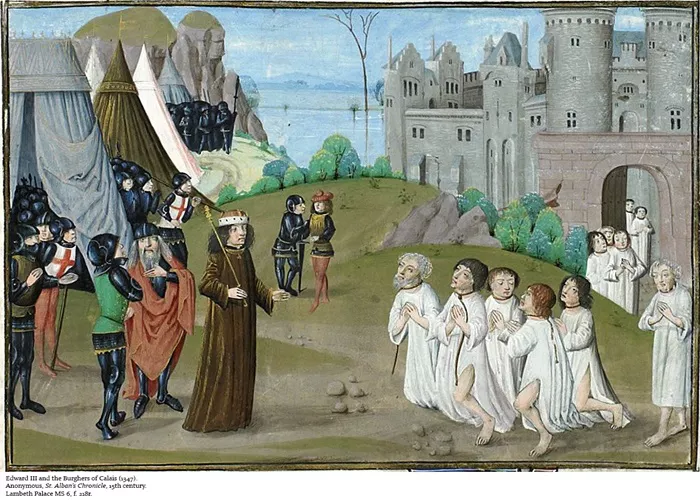January 18 has witnessed various notable events throughout British history, spanning centuries and encompassing military, political, and cultural significance. This article will explore these events in detail, providing a comprehensive look at what transpired on this date.
What Happened on January 18 in British History?
1. The Siege of Calais (1347)
On January 18, 1347, during the Hundred Years’ War, the English forces under King Edward III achieved a significant victory by laying siege to Calais. This marked a pivotal moment in the conflict between England and France. The siege lasted for nearly a year and culminated in the capture of Calais in August 1347.
The Hundred Years’ War began in 1337 and continued until 1453, characterized by intermittent conflicts over territorial claims and the French throne.
Calais was a strategic port that allowed the English to maintain a foothold on the European continent.
The capture of Calais enabled England to control trade routes and exert influence over France, significantly altering the balance of power in the region.
2. The Birth of John Logie Baird (1888)
John Logie Baird, born on January 18, 1888, is renowned as one of the inventors of television. His pioneering work in the field of optics and electronics laid the groundwork for modern television broadcasting.
Baird demonstrated the first working television system in 1926.
He was instrumental in developing both monochrome and color television technologies.
His innovations included the first public demonstration of television transmission and the first transatlantic television transmission.
Baird’s work revolutionized communication and entertainment, leading to the widespread adoption of television as a medium for information and culture.
Today, he is celebrated as a key figure in media history, with numerous awards and recognitions honoring his contributions.
3. The Establishment of the First Regular Trans-Atlantic Shipping Service (1818)
On January 18, 1818, the first regular trans-Atlantic shipping service commenced between Liverpool and New York. This development was crucial for enhancing trade relations between Britain and America.
The service facilitated faster movement of goods and people across the Atlantic Ocean.
It played a vital role in expanding British commerce during the Industrial Revolution.
The establishment of regular shipping routes contributed to increased immigration to America from Britain.
4. The Battle of Frenchtown (1813)
On January 18, 1813, American forces seized Frenchtown (now Monroe, Michigan) during the War of 1812. This military engagement was part of a larger conflict between the United States and Great Britain.
The battle was characterized by fierce fighting as American troops sought to gain control over strategic locations in Michigan.
Following this engagement, American forces faced significant casualties during subsequent encounters, notably at the Battle of River Raisin later that month.
The seizure of Frenchtown illustrated the volatility of territorial control during this period.
It also highlighted the challenges faced by American forces in their efforts to repel British influence in North America.
5. The German Zeppelin Bombardment (1915)
On January 18, 1915, German Zeppelin airships conducted bombing raids along the eastern coast of England during World War I. This marked one of the early uses of aerial bombardment against civilian targets.
The attacks resulted in significant destruction and loss of life, instilling fear among British citizens.
This event underscored the changing nature of warfare as technology advanced.
It prompted discussions about air defense strategies within Britain.
6. The First Edition of Daily News Published (1846)
The first edition of Daily News, edited by Charles Dickens, was published on January 18, 1846. This newspaper was significant for its role in shaping public opinion during a time of great social change in Britain.
Daily News focused on political issues, social reform, and literary criticism.
Dickens aimed to provide a platform for discussing pressing societal issues such as poverty and education.
The publication contributed to Dickens’ legacy as not only a novelist but also an influential commentator on social issues.
It paved the way for future newspapers to adopt similar approaches to journalism.
7. The First Parliament Meeting (1265)
Although not specifically on January 18 but within January’s context, it is noteworthy that England’s first Parliament met at Westminster Hall around this time in history (January 20). This event marked a significant evolution in British governance.
Simon de Montfort summoned this Parliament to address grievances against King Henry III.
It included representatives from various regions rather than just nobles.
This laid foundations for modern parliamentary democracy by introducing broader representation.
Conclusion
January 18 has been pivotal throughout British history for various reasons—military victories during wars, advancements in technology like television, significant publications that influenced public discourse, and foundational events that shaped governance. Each event reflects broader themes within British history such as conflict resolution, technological innovation, social reform, and democratic evolution. Understanding these occurrences provides valuable insights into how they have shaped contemporary Britain.
Related Topics:

